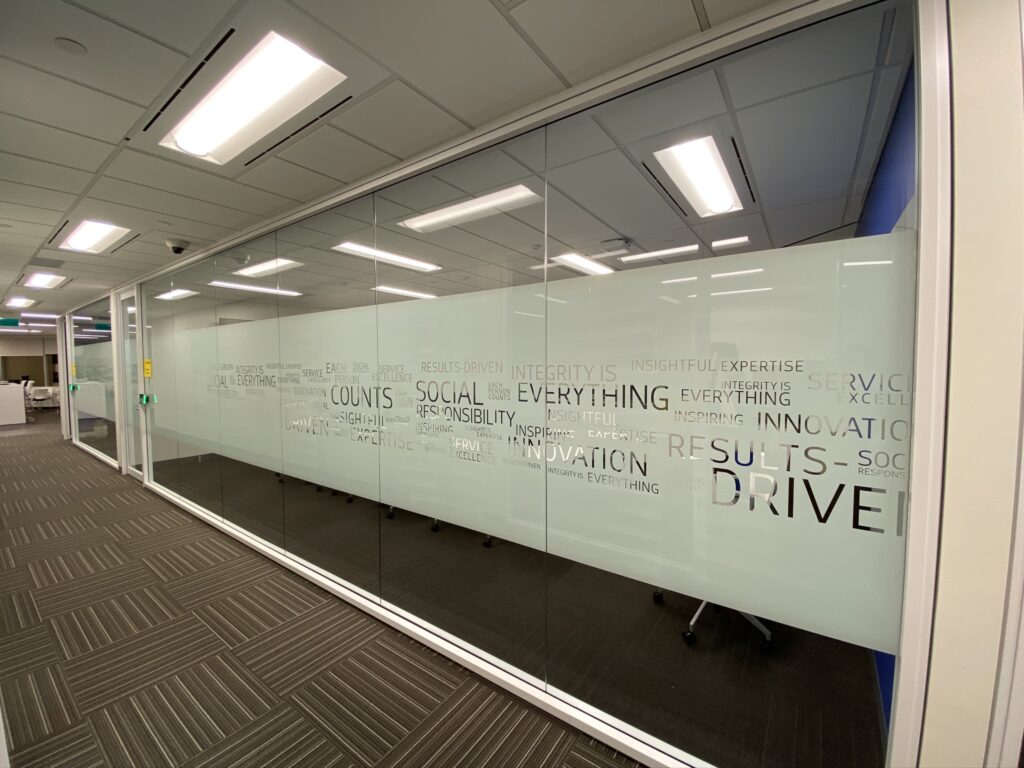
Smart Films
Smart films, also known as switchable films or privacy films, are innovative and technologically advanced materials that can change their optical properties in response to external stimuli. The most common type of smart film is electrochromic, meaning it can alter its transparency or opacity when an electric voltage is applied. Here are some key features and applications of smart films:
- Privacy Control: One of the primary applications of smart films is in privacy control. When an electric current is applied, the film can change from transparent to opaque, providing on-demand privacy for windows or glass partitions. This is particularly useful in office spaces, conference rooms, residential settings, and healthcare environments.
- Variable Light Control: Smart films can control the amount of light passing through them. By adjusting the transparency, they can help regulate the intensity of natural light in a space, reducing glare and creating a more comfortable environment.
- Energy Efficiency: Smart films can contribute to energy efficiency by controlling the amount of sunlight entering a building. By reducing heat gain during hot periods and maximizing natural light during cooler times, they can help lower energy consumption for heating, cooling, and lighting.
- Security and Safety: Some smart films are designed to enhance security by providing an additional layer of protection. In their opaque state, they can prevent outsiders from seeing into a building, adding a level of security. Additionally, they can contribute to safety by holding shattered glass together in the event of breakage.
- Aesthetic Enhancement: Smart films offer a modern and sleek aesthetic. They can be integrated into architectural designs to create dynamic and adaptive spaces.
- Remote Control and Automation: Many smart film systems can be controlled remotely, allowing users to adjust transparency or opacity levels through a mobile app or automation system. This feature adds convenience and flexibility to the use of smart films.
- Customization: Smart films are available in various sizes and can be cut to fit specific window dimensions. They can also be customized with patterns, logos, or designs to meet specific aesthetic or branding requirements.
While smart films offer numerous benefits, they are generally more expensive than traditional window treatments. However, their energy-saving capabilities and dynamic features can make them a valuable investment in certain applications. It’s essential to consult with professionals for the proper installation and integration of smart films into architectural and design projects.

